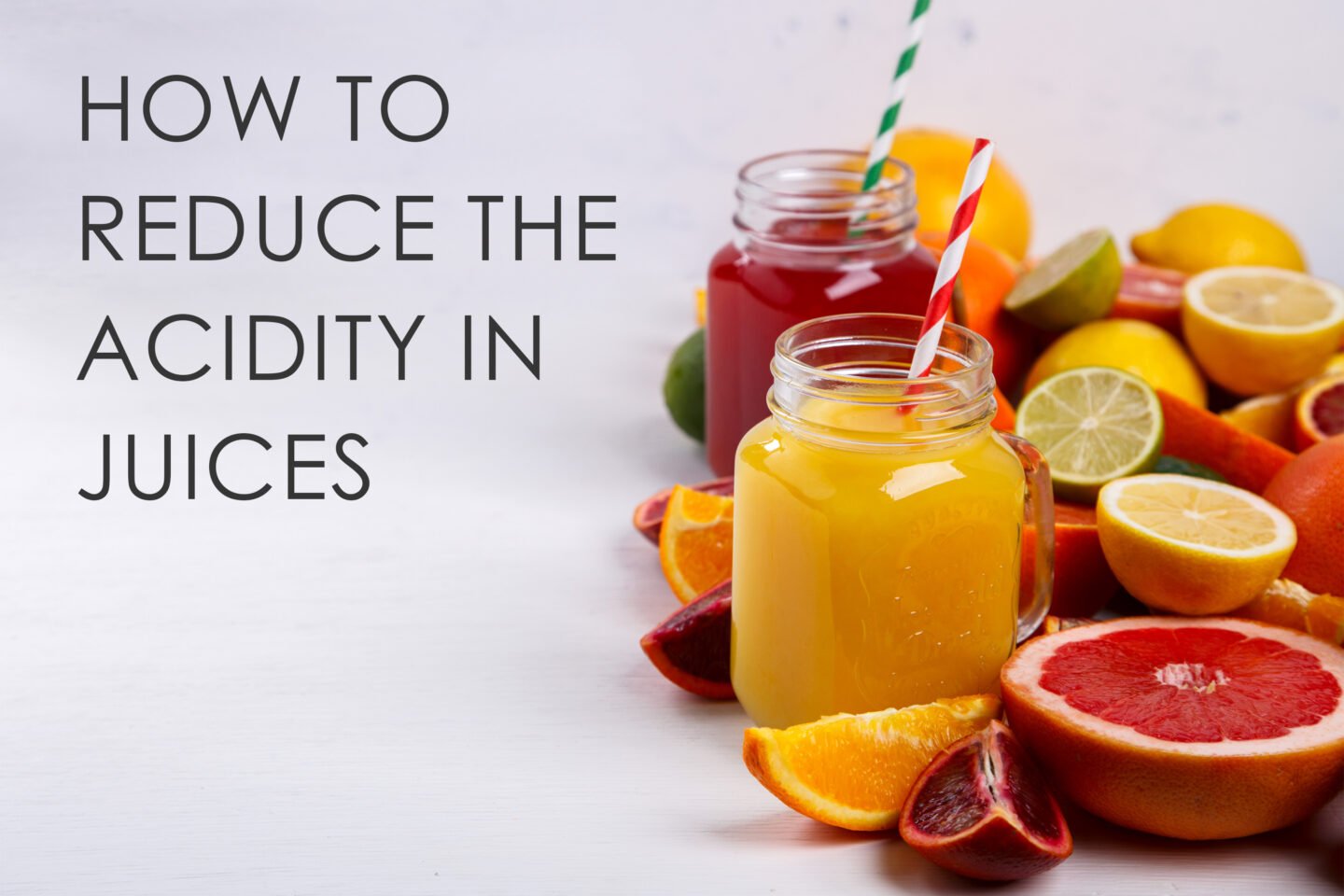Juices made with fresh vegetables or fruits are healthy, nutritious, and packed with compounds beneficial to your health. There are dozens to choose from, and they're delicious either alone or mixed, especially on a hot day.

However, many are acidic, and people suffering from acid reflux and GERD must be careful not to include too many acidic foods or drinks in their diets to avoid triggering their symptoms.
Table of Contents
How To Reduce Juices' Acidity
Adding alkaline ingredients or diluting your juice with water are the best ways to reduce acidity.
Not drinking acidic juices is best for avoiding triggering your acid reflux symptoms. But if your favorite juice is acidic, it is possible to make it less so.
How Can You Reduce Juices' Acidity?
If your favorite juice is acidic, try diluting it with tap, mineral, or alkaline water.
Adding water or alkalizing liquids will make it less flavorful, but you shouldn’t trigger your symptoms.
Try adding baking soda, which will neutralize the acidity but also alter the taste.
The sweeter the juice, the worse it will be for your acid reflux and GERD symptoms, as sugar requires more gastric acid to be digested.
Don't know what to drink? Check out these articles: 20 Most and Least Acidic Juices and 20+ Alcoholic Drinks Ranked by Acidity Level
Mixing low-acid juices with your favorite juice will result in a less-acidic drink. Some of the best are carrot, aloe vera, cabbage, beet, watermelon, spinach, and pear.
Tomato juice and lemon juice are both alkaline-forming, but the latter may irritate your esophagus due to its sour taste.
What Are the Best Low-acid Juices?
Generally, juices made from fresh vegetables and fruits are best for those on a low-acid diet. If you make them at home, you can measure their acidity.
Lemon and lime juices are alkaline-forming, so they're excellent for those on a low-acid diet. However, they're very sour, so they may irritate your esophagus.
Many brands now have low-acid versions of the most popular juices, although they can be expensive.
Vegetable juices have more alkaline-forming properties and are less acidic than fruit juices. They also contain nutrients that protect your digestive system from inflammation and irritation.
Although most juices are acidic, it's possible to lower their acidity, reducing the likelihood of them triggering your acid reflux symptoms.
Don't know what to drink? Check out these articles: 20 Most and Least Acidic Juices and 20+ Alcoholic Drinks Ranked by Acidity Level
